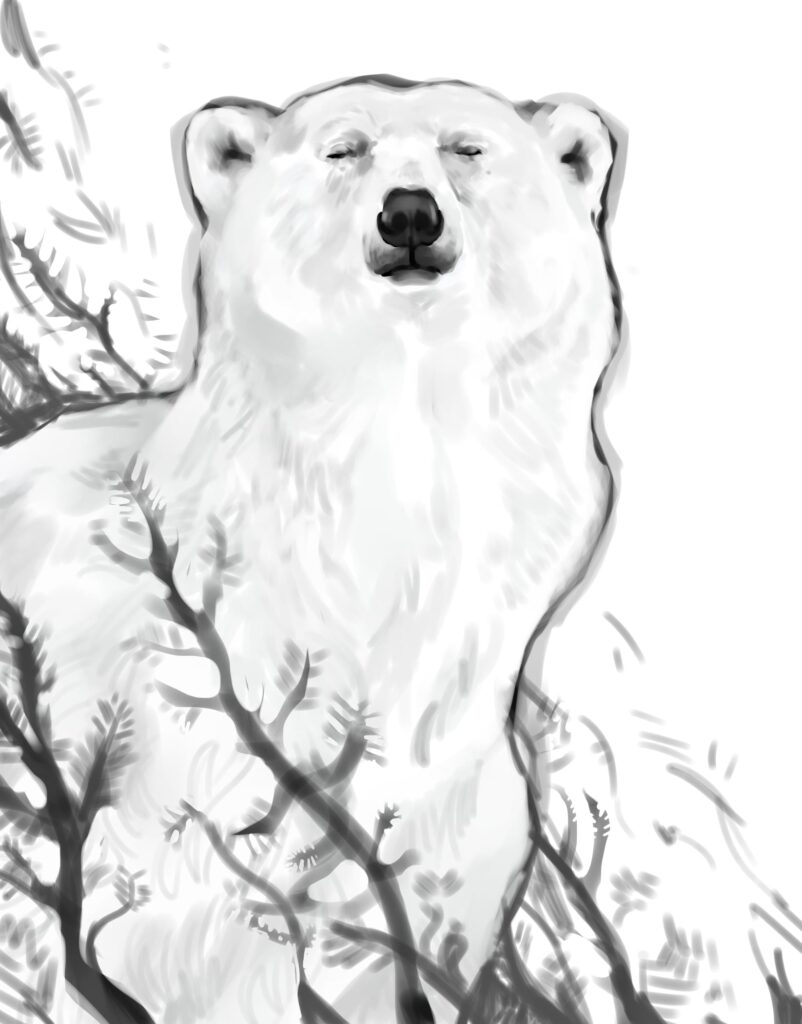
On the evening of Nov. 3, Ken Clifton, a Professor Emeritus of Biology at Lewis & Clark, and Andrew McPheeters, the associate vice president for community education and travel programs, gathered over Zoom with other alumni to discuss LC’s trip to the Arctic in August 2024 and teach attendees some facts about the environment in the area. The trip has reached 16 participants and will move forward as planned.
The group will launch from Longyearbyen in Svalbard, an island off the northern coast of Norway and make their way to the artic circle.
Clifton retired last spring and has been on five alumni trips with LC. He was the faculty leader for the 2020 cruise to Antarctica, and has been on two safaris in Tanzania and two schooner cruises among the San Juan Islands, but has never been to the Arctic Circle—the most northern and remote region of Antarctica.
“My visit to the Antarctic gave me a nice introduction to polar environments and I’m looking forward to comparing and contrasting the two places,” Clifton said.
He takes great enjoyment in these extraordinary opportunities, because he believes in the importance of experiential learning. In his previous role as professor of biology, Clifton’s main interest was in behavioral ecology, focusing on subjects such as jellyfish and the sex life of seaweed.
“(I get) really excited about jellies,” Clifton said.
During the lecture, Clifton explained and quizzed attendees on the architecture, environment and ecology of the Arctic, including the food web, how the habitat is different from most other ecosystems and how the unusual light cycles—it being dark for several months out of the year—affect the biodiversity and the food web.
Clifton went on to detail basic biology including producers, consumers and endotherms and ectotherms, as well as what kind of factors—biotic and abiotic—affect the environment.
He explained how this cycle of complete dark in the winter months and complete light in the summer months affects primary producers, or organisms that produce food through photosynthesis. In the Arctic, primary producers experience a huge spike in photosynthesis in the summer and a dip in the winter, as opposed to in more temperate environments where photosynthesis levels vary less throughout the year.
In addition, many animals migrate north during the summer to take advantage of this huge boom in food. While this is a long and arduous journey, the effort of the migration is greatly offset by the sheer abundance of sustenance.
Clifton also touched on the adaptability of the different animals that live so far north and how they evolved to survive in the harsh climate. Some animals gained a white color which helped them blend in better with the snow, while others evolved thick layers of fat and fur, as well as adopting hibernation behaviors to deal with the cold, especially during winter.
Many animals and even certain plants show this kind of adaptive behavior, with some bugs and plants even being resistant to frost in the earlier stages of their life cycles—larvae and seeds—while their adult forms die off. Other larger animals must feast on food at the end of the summer before “hunkering down,” as Clifton describes, often by burying themselves for the winter.
Clifton concluded the lecture by pulling everything together: There would be no polar bears without the existence of all those species in the food web below them, and all rely on each other and the adaptive traits required to survive in such an extreme environment.
Clifton warns that a warming planet and changes to the oceans threaten to alter the environment dramatically and it is important to stay informed and take care, or the balance of this ecosystem will be thrown off.
“It is very gratifying to share amazing parts of the planet with others who are keen to explore and learn more about a place (as LC alums and parentgenerally are!),” Clifton wrote via email. “I’m an ardent advocate for experiential learning opportunities, believing that, no matter where you are, the real world has many lessons to offer.”
Subscribe to the Mossy Log Newsletter
Stay up to date with the goings-on at Lewis & Clark! Get the top stories or your favorite section delivered to your inbox whenever we release a new issue.

Leave a Reply